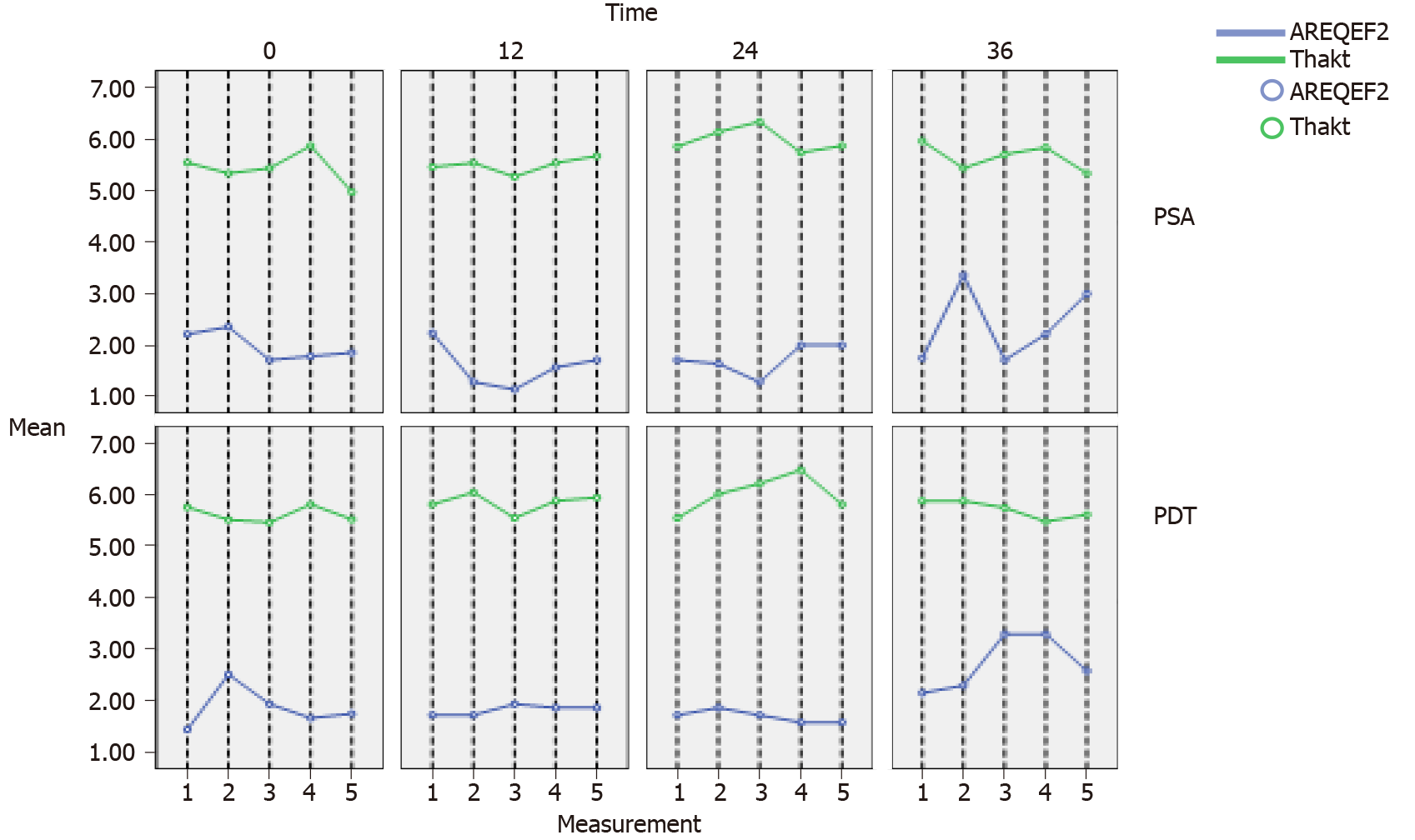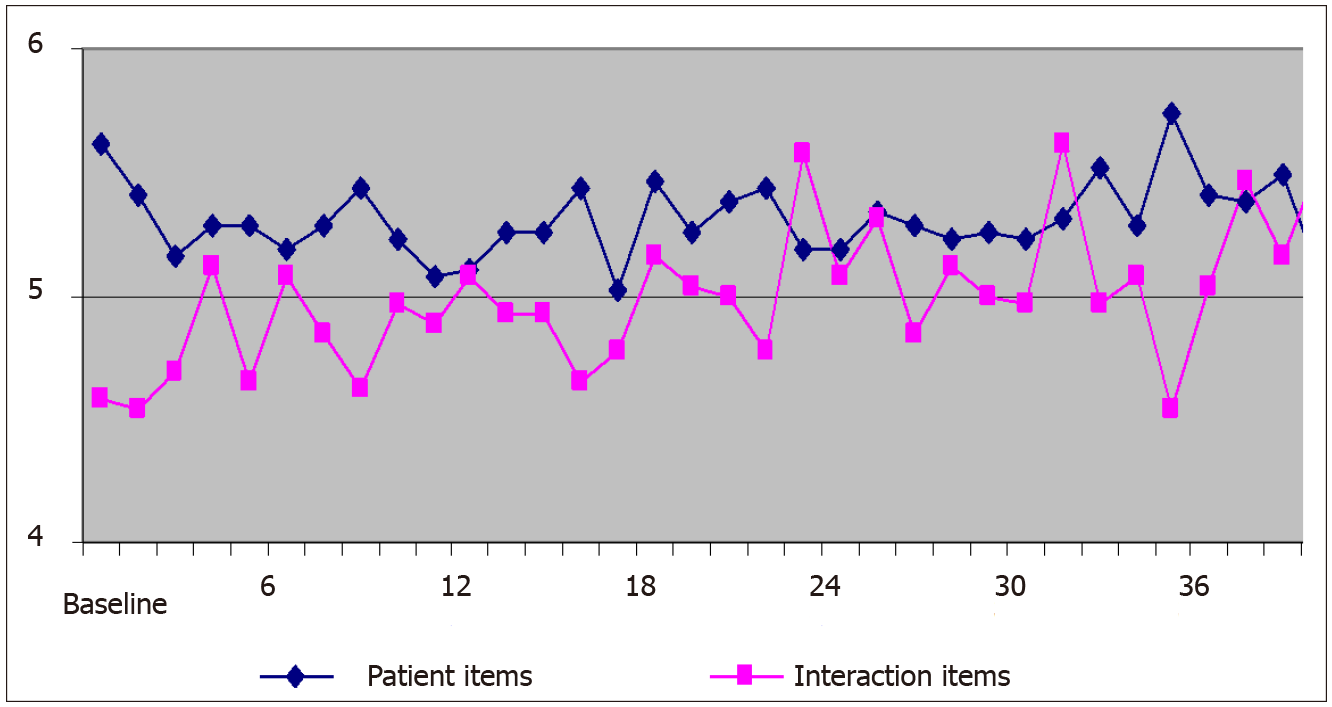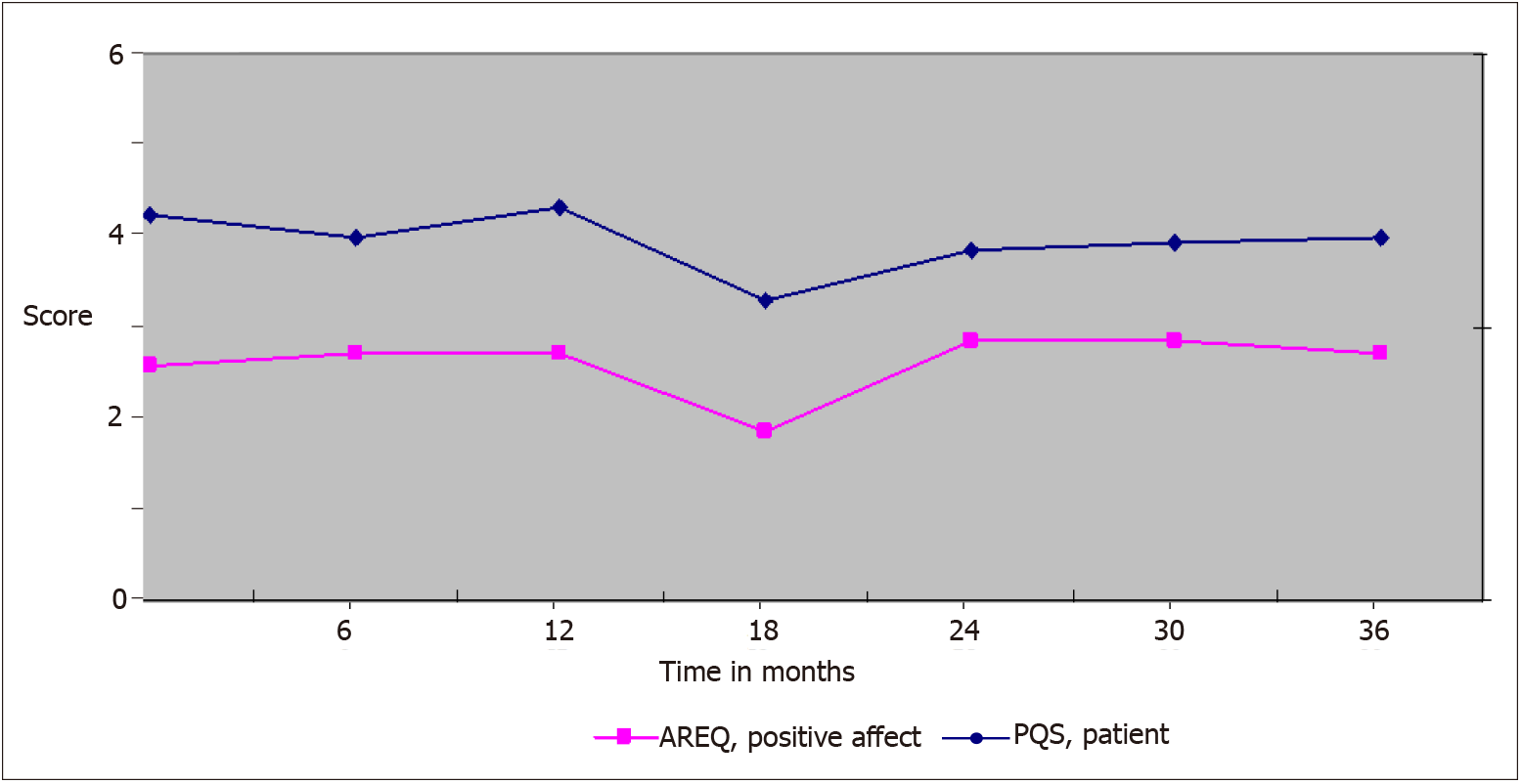Copyright
©The Author(s) 2021.
World J Psychiatr. Dec 19, 2021; 11(12): 1328-1345
Published online Dec 19, 2021. doi: 10.5498/wjp.v11.i12.1328
Published online Dec 19, 2021. doi: 10.5498/wjp.v11.i12.1328
Figure 1 Course of Shedler-Westen Assessment Procedure-items 76 and 116.
Course of sensible Shedler-Westen Assessment Procedure-Items 076 (‘7’, black) and 116 (‘11’, grey) both assessing “projective identification” (Item 076: “Manages to elicit in others feelings similar to those he or she is experiencing” (e.g., when angry, acts in such a way as to provoke anger in others; when anxious, acts in such a way as to induce anxiety in others); Item 116: “Tends to see own unacceptable feelings or impulses in other people instead of in him/herself.”). Disrupted line: Broken off treatment, continuous line: Completed treatment; tp: Half-yearly measurements showed a significant effect of time (P = 0.004). SWAP: Shedler-Westen Assessment Procedure.
Figure 2 Therapeutic action and positive affect.
The evaluation of therapeutic action (‘thakt’, i.e., psychotherapy process Q-sort-therapeutic action) and positive affects in patients [‘Affect experience and affect regulation Q-sort (AREQ)-EF2’, i.e., AREQ-positive affect] was performed semi-annually in five consecutive therapy sessions (measurement 1-5). The results of the annual measurements (baseline, 12, 24 and 36 mo) of thakt and AREQ-EF2 (mean) are presented in the figure for the psychoanalysis and for the psychodynamic therapy group. PSA: Psychoanalysis; PDT: Psychodynamic psychotherapy.
Figure 3 Patient-therapist interactions.
Object-relation dyad measured with psychotherapy process Q-sort. Patient items are shown in blue, “interaction structure items” are shown in magenta. The follow-up was > 36 mo.
Figure 4 Affective response and psychotherapy process: Case example.
Affective response (Affect experience and affect regulation Q-sort: Positive affect, shown in magenta) and therapeutic interaction structures (Psychotherapy process Q-sort: Shown in blue) over the course of 36 mo. PQS: Psychotherapy process Q-sort; AREQ: Affect experience and affect regulation Q-sort.
- Citation: Steinmair D, Wong G, Frantal S, Rohm C, Löffler-Stastka H. Affect regulation in psychoanalytic treatments of patients with a borderline personality disorder–psychoanalysis and psychodynamic psychotherapy–a comparison. World J Psychiatr 2021; 11(12): 1328-1345
- URL: https://www.wjgnet.com/2220-3206/full/v11/i12/1328.htm
- DOI: https://dx.doi.org/10.5498/wjp.v11.i12.1328












